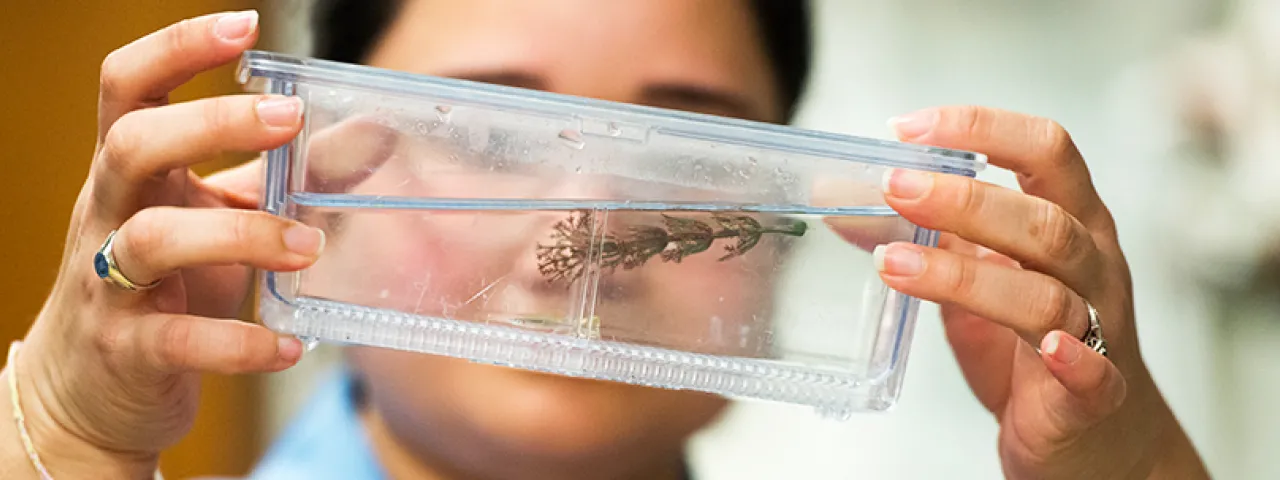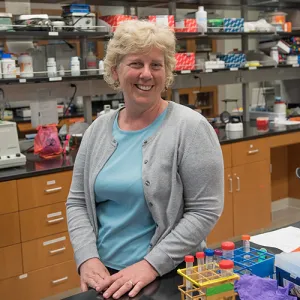
Master of Science in Biological Sciences
The Department of Biological Sciences maintains an active graduate program leading to the master of science degree in biological sciences and offers opportunities for original work in a wide variety of fields, including animal behavior, biochemistry, cell and developmental biology, ecology, environmental science, evolutionary biology, genetics, marine biology, microbiology, molecular biology, neurobiology, plant sciences, and physiology.
Overview & Admission
Requirements & Courses
The master’s program in biological sciences continues and enhances the undergraduate foundation of a number of academic disciplines, including biology, biochemistry, neuroscience, and environmental science and policy. This program focuses on modern methods in both laboratory and field research and requires students to design and implement a thesis demonstrating sophisticated experimental and conceptual approaches to substantive questions in the biological sciences.
Over the course of the program, students are expected to develop:
- A deep knowledge of a life sciences subdiscipline through a faculty-mentored research project.
- The ability to think critically and design rigorous experiments.
- The ability to collect, organize and analyze data.
- Laboratory and/or field research skills using sophisticated instrumentation.
- Read, synthesize and critique primary research articles in their field.
- Enhanced skills in writing and public speaking through presentations in classes, campus research symposia and at regional or national scientific meetings.
With a rich array of courses and access to extensive research resources, graduate students in biological sciences reinforce and expand their knowledge and the experience they need to continue successful careers in the life sciences.
Prerequisites
Applicants to the Biological Sciences Master’s Program are normally expected to have majored in biological sciences or a related field, although the department will also consider applicants who have had some undergraduate work in the field but majored in an unrelated field. Prospective students who are in this latter category should address questions about specific details of their academic background to the director (Jesse Bellemare). With departmental approval, students whose undergraduate preparation in biology is incomplete may make up any gaps in their training through course work at Smith College.
In addition to the courses listed below, graduate students can take courses at the other schools participating in the Five College Consortium, including the University of Massachusetts.
In consultation with the graduate adviser, master’s students at Smith have ample opportunity to build a challenging and appropriate graduate program.
Molecular & Cellular Biology
- Colloquium on Molecular Medicine
- Developmental Biology
- Histology
- Immunology
- Introduction to Biological Fine Structure
- Molecular Biology of Eukaryotic Systems
- Molecular Physiology
- Seminar: Molecular Biology (topics vary)
Faculty
Contact Department of Biology
Burton Hall 115
Smith College
Northampton, MA 01063
Phone: 413-585-6584 Email: kbeyer@smith.edu
Administrative Coordinator: Katy Beyer
Program Director: Jesse Bellemare


















